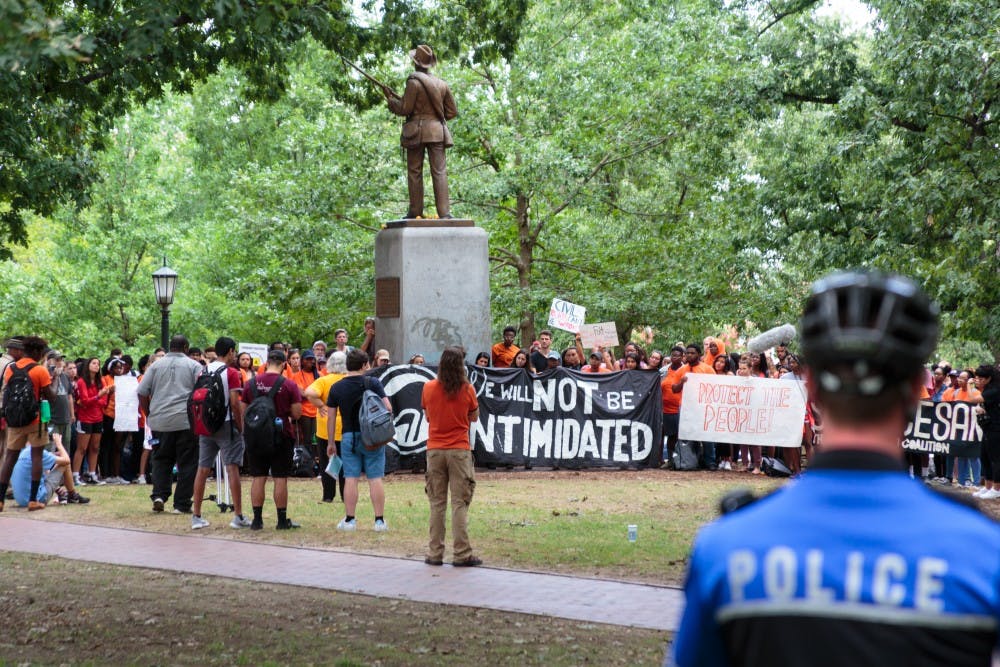Students and faculty at UNC signed onto a letter that states that the University will be sued if Silent Sam is not taken down because of violations to Titles VI and IV of the Civil Rights Act.
The letter was sent by lawyer Hampton Dellinger to UNC Systems President Margaret Spellings and Chancellor Carol Folt.
“I’m certainly pleased with the fact that I saw UNC spokesmen say that UNC officials would consider the letter and the information that we brought forward on students’ behalf,” Dellinger said. “I think that’s a very positive development; that’s what we were hoping: that UNC would receive the information, consider it closely and then open up a dialogue with students about appropriate next steps.”
The citing of Title VI refers to Silent Sam as a threat to the safety of people of color on the University’s campus, with the letter stating “the statue violates federal anti-discrimination laws by fostering a racially hostile learning environment.”
Some of the students who signed the letter felt a removal of Silent Sam would show that the University cares about the concerns and safety of people of color.
“Taking that down is a way for them to show us that they are listening, not just hearing us, but that they are actually listening to what we’re saying, and how we’re feeling and that our feelings are justified and real,” signee Rimel Mwamba said.
Citing past Confederate rallies at Silent Sam, Campus Y Co-chair and letter signee Courtney Staton argued the statue could serve as a rallying point for those looking to harm people of color on UNC’s campus. Staton also pointed to taking down Silent Sam as a starting point for addressing systemic racism on UNC’s campus.
“It’s not just Silent Sam. When we were talking about Silent Sam, we were also talking about the Center for Civil Rights,” Staton said. “The people who are sitting in at Silent Sam are also educating people about the Center for Civil Rights and about other places that we lack on this campus.”
Some students — like junior Andrew Brennen, a member of The Daily Tar Heel's Board of Directors who supports the letter on Facebook — felt the letter represented a broad sentiment throughout the UNC community in regards to UNC’s history of institutionalized racism and signified a starting point for a broader movement.




